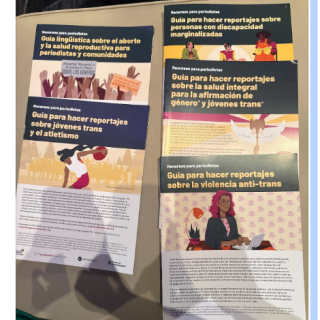After a disturbing pattern of apparent retaliation, neglect and discrimination at the highest level of power within the Columbus Police Department (CPD), State Rep. Bernadine Kennedy Kent (D-Columbus) is calling on Mayor Andrew Ginther and City Council members to hold Police Chief Kim Jacobs accountable for her blatant insubordination and dereliction of duty.
"When people pick up the phone for help, they need the police to do everything in their power to keep our community safe and bring criminals to justice," said Kennedy Kent. "Police Chief Jacobs has not only failed to ensure the rights of victims are protected, but public records support her biases opened the door to undeserved intimidation, discrimination, and retaliation of whistleblowers as well as victims. It's politics at its worst. Taxpayers deserve accountability from the city's top cop."
In a letter to Ginther and members of City Council, Kennedy Kent details a cover-up by Jacobs and individual members of her department, that included a detective fabricating call logs to a victim of a violent crime seeking justice. Once the victim, Diona Clark, discovered this fabrication through requesting her cell phone records, she then shared this information with the Public Safety Director to be added to her appeal and new complaint against the detective and his superior.
Both filings were filed in accordance with the Division's written directives. However, Ms. Clark's November 27, 2017 new complaint, which should have gone to the Division's Internal Affairs Bureau (IAB) to be entered into their system for investigation; and her appeal, which should have gone to the Division's Deputy Chief, were never addressed by Jacobs, even though she was repeatedly directed to do so in writing by City Public Safety Director Ned Pettus.
Instead of having Ms. Clark's complaint and the subsequent fake calls from the detective investigated, Police Chief Jacobs recused herself from any investigation associated with Kent, who advocates for Ms. Clark and who has a history of advocating for child victims of crime within the city. Additionally, Kent maintains her February 2, 2018 complaint also sent to Jacobs from Pettus to be appropriately addressed was never entered into the Internal Affairs system for investigation. Kent says, "People already feel when they file that complaint, they put a target on themselves. We don't need a Police Chief deciding some complaints are not worthy of even being entered into the Internal Affairs' system for investigation or tracking."
Following the recusal, which lacked any documented legal or reasonable basis, Kennedy Kent received an internal investigation report naming her as a "suspect" in an ongoing investigation - something Kent alleges was designed to intimidate her and prevent her from being active in seeking justice for victims of crime. However, as a result of a public records request, Kent came across an email previously unknown to her between a deputy chief and a human resource person in the Public Safety office that said Kent being listed as a criminal suspect on an official police report was an internal software glitch.
"Citizens and victims of crime in this city have the right to be taken seriously and treated with the respect and dignity that all taxpayers deserve. They also have the right to expect the established policies, practices and procedures put in place to be followed," said Kennedy Kent. "If Chief Jacobs won't take responsibility for her actions, I believe it is up to the Mayor and city officials to hold her accountable to ensure taxpayers get good government - not bad politics."
Kent has stated it's hard for her to hold anyone else accountable in her reported cases but Jacobs at this point. Jacobs' personal decision to recuse herself from all decision-making in investigations associated with a State Representative, overwhelming elected by the people to represent them, defies logic and is simply intolerable. The misconduct associated with the actions of Jacobs' subordinates appears reflective of Jacobs' unashamedly, expressed personal bias.
Either through explicit or implicit orders, subordinates feel obligated to do what they're told or to do what they believe superiors expect them to do. Too many times for employees in subordinate positions, it's either do the right thing as the policy dictates or risk their career and then not be able to feed their family. Police Officers must be free to exercise their best judgment and initiate proper action in a reasonable, lawful, impartial manner, without fear of reprisal.
Kennedy Kent sees Jacobs' unlawful recusal as a reason no investigation has taken place with her office on behalf of Rachel Anderson, who was allegedly kidnapped, raped and murdered by Anthony Pardon. Several hours after Anderson's murder, Pardon gained access to the lawmaker's Statehouse office, meeting with Kent's staff to try to obtain an official state ID. To date, Columbus police have failed to interview Kent's office and other staff about Pardon's interactions with them following the senseless and brutal murder of Ms. Anderson.
Kent maintains if all her recent allegations and even her previous allegations that Police Chief Jacobs covered up the reported neglect, physical assault and sexual molestation of very young child victims in 2015 are without merit, Jacobs certainly had the power as a law enforcement officer to bring charges against Kent for making false allegations of peace officer misconduct. Kent contends Jacobs did not do so because the allegations are not false.
Ultimately, in the face of Mayor Ginther's newly created commission meant to evaluate policies and make changes, Kennedy Kent is asking the Mayor and City Council to hold Jacobs accountable by taking action up to, and including, termination. In holding Jacobs accountable, Kent sees an opportunity for her office to work closely with police and city officials on critical legislation such as Kent's House Bill 137 that passed unanimously through the house and that would make peace officers mandated reporters of child abuse and neglect as they presently are in the other 49 states.
In holding Jacobs' accountable, Kent also sees hope for victims of crime, especially hope for the reported child victims, for whom she advocated, to have their cases re-examined and/or opened for the first time to determine whether Chief Jacobs' bias and discriminatory behavior played any role in how their cases were handled or investigated before the victim's statute of limitation runs out.



